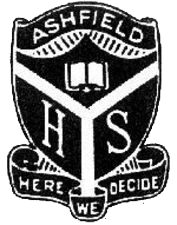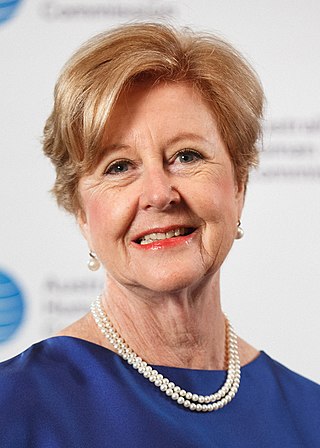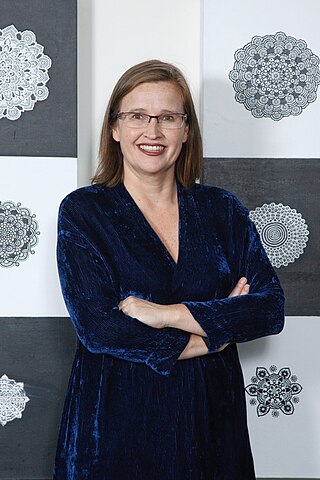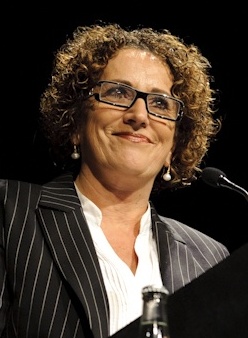
Ashfield Boys High School is a government-funded comprehensive single-sex secondary school for boys, located on Liverpool Road, in Ashfield, an inner western suburb of Sydney, New South Wales, Australia.
Human rights in Australia have largely been developed by the democratically elected Australian Parliament through laws in specific contexts and safeguarded by such institutions as the independent judiciary and the High Court, which implement common law, the Australian Constitution, and various other laws of Australia and its states and territories. Australia also has an independent statutory human rights body, the Australian Human Rights Commission, which investigates and conciliates complaints, and more generally promotes human rights through education, discussion and reporting.

Gillian Doreen Triggs is an Australian academic specialising in public international law. In 2019, she was appointed by United Nations Secretary-General António Guterres as Assistant Secretary-General of the United Nations. In this capacity, she will serve as the Assistant High Commissioner for Protection in the team of the United Nations High Commissioner for Refugees Filippo Grandi.
Maguire v SOCOG 1999 was a decision of the Australian Human Rights and Equal Opportunity Commission, which ruled on 18 October 1999 that a blind man had been directly discriminated against by the failure of a government agency to provide ticketing materials for the Sydney Olympic Games in braille.
Maguire v SOCOG 2000 was a legal case in Australia about making a website accessible to a visually impaired person.
The hate speech laws in Australia give redress to someone who is the victim of discrimination, vilification or injury on grounds that differ from one jurisdiction to another. All Australian jurisdictions give redress when a person is victimised on account of skin colour, ethnicity, national origin or race. Some jurisdictions also give redress when a person is victimised on account of religion, disability, gender identity, HIV/AIDS status or sexual orientation.

Lesbian, gay, bisexual, and transgender (LGBT) people in the Australian state of New South Wales have most of the same rights and responsibilities as non-LGBT people.

Thinethavone "Tim" Soutphommasane is an Australian academic, social commentator and former public servant. He was Australia's Race Discrimination Commissioner at the Australian Human Rights Commission from 2013 to 2018. He has previously been a political staffer for Bob Carr, a columnist with The Age and The Australian newspapers, a lecturer at Sydney and Monash Universities, and a research fellow with the Per Capita think tank. He is a member of the board of the National Australia Day Council, and an ex officio member of the Council for Multicultural Australia.

David Selvarajah Vadiveloo is an Australian lawyer, education reformer and cultural safety consultant.
Anne Hollonds is the current Australian National Children's Commissioner. She was appointed to this position in November 2020. Prior to this role she was the Director of the Australian Institute of Family Studies. For more than 23 years Anne has been a Chief Executive Officer of government and non-government organisations focussed on policy, service delivery and research in health, education and social services, including the Benevolent Society and Relationships Australia NSW.

Timothy Robert Wilson is an Australian former politician and a member of the Liberal Party of Australia who served as the Federal Member for Goldstein in the Australian House of Representatives from 2016 to 2022. Wilson served as the Chair of the Standing Committee on Economics from 2018 to 2021 and as the Assistant Minister to the Minister for Industry, Energy and Emissions Reduction from 2021 to 2022. In the 2022 Australian federal election, Wilson lost his seat to independent candidate Zoe Daniel.

Thomas Edwin Calma,, is an Aboriginal Australian human rights and social justice campaigner, and 2023 senior Australian of the Year. He was the sixth chancellor of the University of Canberra (2014-2023), after two years as deputy chancellor. Calma was the second Aboriginal or Torres Strait Islander person to hold the position of chancellor of any Australian university.

The Hon. Cameron Lionel Murphy AM MLC is an Australian barrister, civil libertarian and Labor Party member of the NSW Legislative Council.

Elizabeth Broderick is an Australian lawyer, who was the Australian Sex Discrimination Commissioner for over eight years from 2007 to 2015 and has been a United Nations special rapporteur for Discrimination against Women and Girls since 2017. She is a former partner and head of legal technology at Ashurst Australia, a global commercial law firm.

Kate Michelle Jenkins was the Sex Discrimination Commissioner at the Australian Human Rights Commission from 2016 to 2023. Previously, she was Commissioner at the Victorian Equal Opportunity and Human Rights Commission. Jenkins is also on the Board of Berry Street Victoria – the state's largest independent child and family welfare organisation – and a member of the boards of Heide Museum of Modern Art and Carlton Football Club.

Helen Veronica Szoke is the former chief executive of Oxfam Australia, and a commentator and advocate on issues of human rights, poverty, inequality, gender and race discrimination. Throughout her career, she has held leadership roles across the health sector, human rights and public policy, and international development sector.
Peter George Kaye is the CEO of the Duke of Edinburgh's International Award – Australia.
Freedom of religion in Australia is allowed in practice and protected to varying degrees through the constitution and legislation at the Federal, state and territory level. Australia is a pluralist country with legislated principle of state neutrality and with no state religion. The nation has over 13.6 million people who identify as religious and over 9.8 million who identify with no religion.
Elizabeth Jane Elliott is an Australian clinician scientist. She is a Member of the Order of Australia (AM), for services to paediatrics and child health, as well as an Elected Fellow of the Australian Academy of Health and Medical Science (AAHMS), Fellow of the Royal Society of NSW, and Fellow of the Academy of Child and Adolescent Health. She was the first female to win the James Cook Medal, awarded by the Royal Society of NSW for contributions to human welfare. She is a Distinguished Professor of paediatrics at the University of Sydney and a Consultant Paediatrician at the Sydney Children’s Hospitals Network, Westmead, and regarded as a "pioneer in fetal alcohol spectrum disorder, advocacy and patient care".
Nathan Basha is an Australian motivational speaker, filmmaker and advocate around equity in employment access for people with disability.











